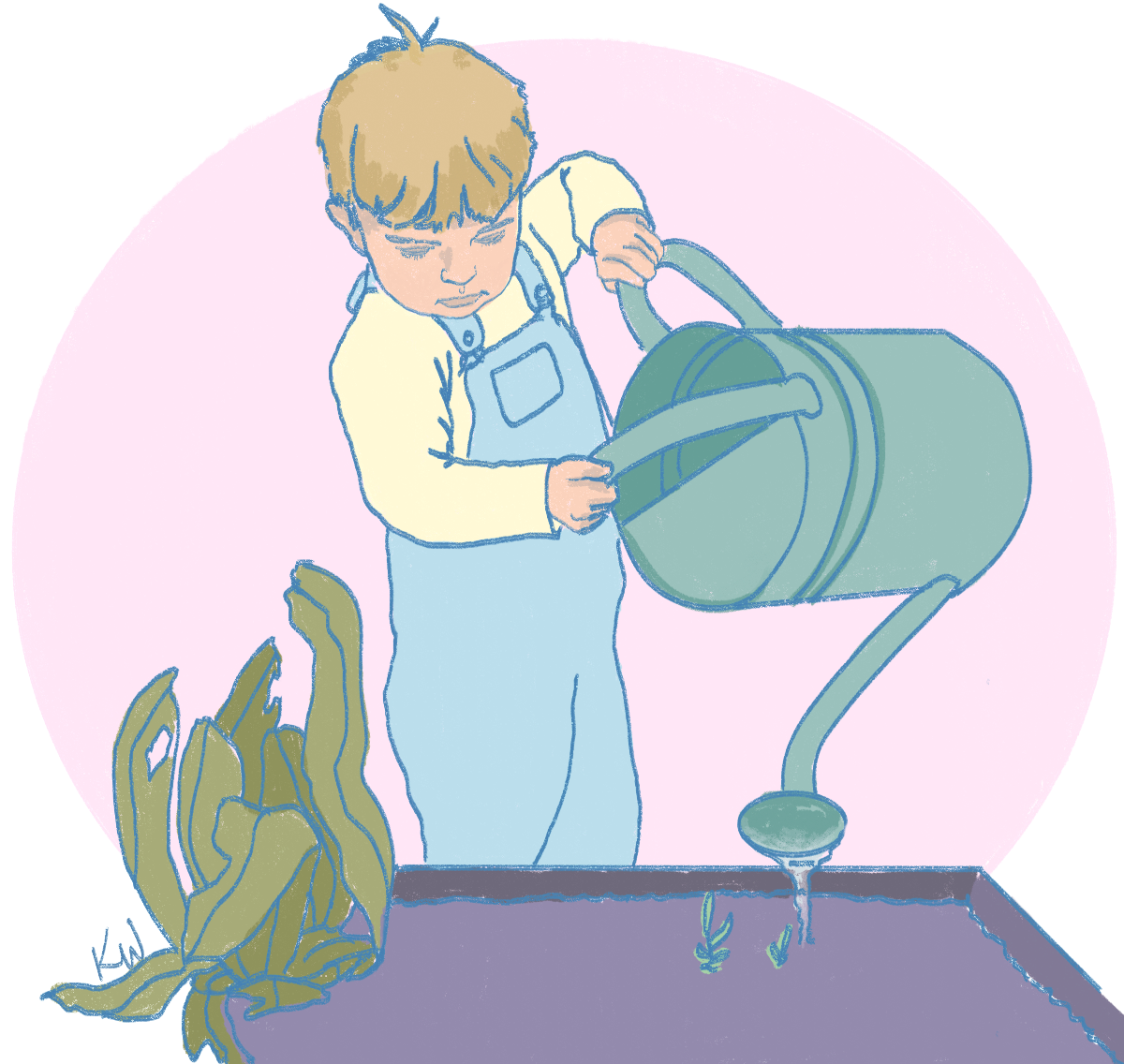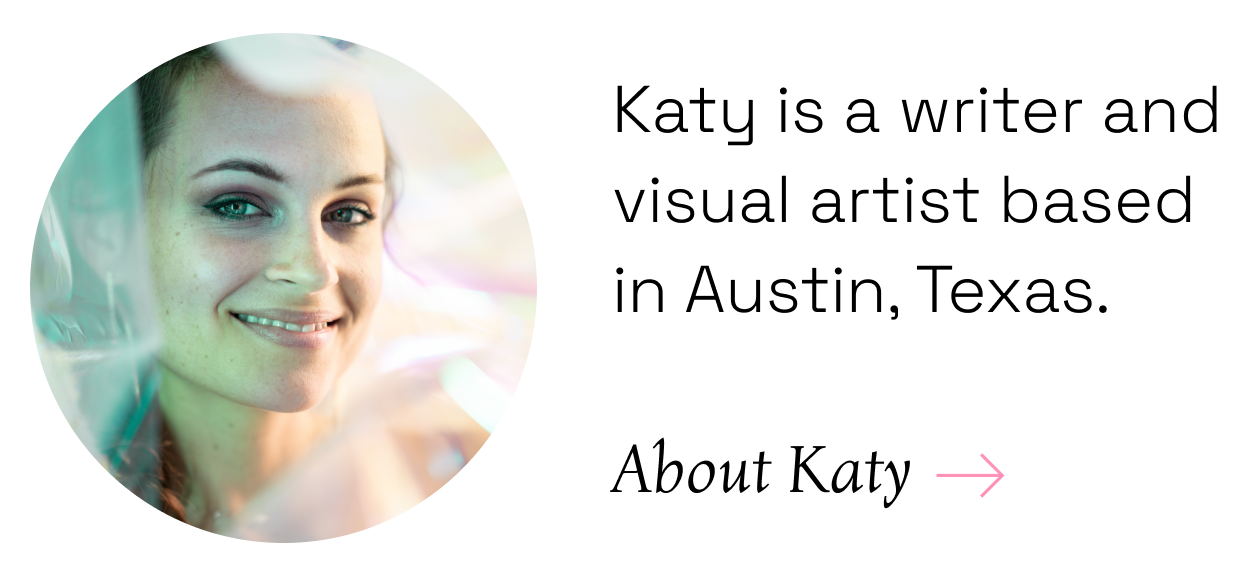One of the ingredients to being fully expressed in the world is completely immaterial.
It’s time.
The more I come to appreciate true beauty in life, the more I consider patience an active ingredient in forming my deepest sensations into creations and experiences. Here are a few principles of time as the unseen medium for full self-expression.
1. “Make haste, slowly” or “slow is smooth, and smooth is fast”
Appreciating time isn’t necessarily about cutting things out and living slow. I’m not moving to the countryside and growing a garden.
To me, “slow is smooth” is more about appreciating the time things take to naturally unfold, and being deliberate in the journey instead of rushed toward an end result. That goes for art, for my marketing business, for my health, and especially for relationships.
Appreciating time is a skill worth developing.
As an ambitious person, I used to feel impatient a lot.
But impatience misses the nuance of how things naturally develop and interrelate.
Learning to draw forces you to retrain what you see.
The brain categorizes shapes into a hand, a face, or an animal we know. To draw a hand with accuracy, you have to force your mind not to see the hand, but see the rectangles and cylinders instead. Then, you draw those individual shapes.
Appreciating time is a similar thing.
Instead of seeing an idealized future or catastrophizing the present, you train yourself to see the individual ingredients of change and how they come together.
- A hosted dinner becomes the friend who nudges you toward launching a brand.
- A daily walk becomes a set of reflections that keep you from repeating a mistake.
- A needy family member becomes a new capacity for gentleness and intimacy.
Things start to look like more of a story.
And as I follow along, I find myself saying “We’ll see” instead of “Oh no.”
Make haste slowly…
I discovered the latin phrase festina lente in one of Tim Ferris’s newsletters. Apparently, Caesar Augusts minted gold coins with an image of a crab and a butterfly to denote this favorite saying: make haste slowly.
Through the Renaissance, the phrase was depicted with a dolphin and anchor, and with a hare in a snail shell (my favorite).

I’ve added imagery of snails to my next painting to capture the feeling of deliberateness, ease, and relaxing into time.
Relaxing into the time we have is a mark of fearlessness.
I don’t believe in forcing things into being. I do believe that all the ingredients are usually there if we notice and ask for them. They tend to bear fruit or insight if we have the sensitivity to let them unfold, and appreciate the time it takes along the way.
2. You don’t need trust when you have patience.
I see ‘trust’ referenced as a core value or essential ingredient all the time (especially on dating profiles). To me, it reads as a signal of insecurity or impatience.
Things happen, and we let them inform our expectations and boundaries. Without needing to form a rigid opinion or a quick attachment, our affinity to a person, opportunity, brand, etc. is built over time.
What does this have to do with self expression?
What we lend our belief and attention to can be based on faith and trust, or based on knowing.
- When you test your ideas and they feel authentic, you know to keep going.
- When you trust your instincts and they repeatedly prove true, you know that your instincts are reliable.
- When you watch what people say and do over time, you know what to expect of them.
When we apply this principle to expressing ourselves in the world, we can build confidence on knowing what feels authentic rather than trusting that other people will be nice to us in return.
Any insecurity around expressing our full selves comes from a lack of evidence that it’s safe and rewarding to do so. And so, over time, we test in increments until we know our truest voice.
The only trust I need, it seems to me, is trusting that time will show me everything I need to know, so long as I pay attention and keep experimenting.

3. Stop resisting time and love life’s subtleties instead.
Our culture is terrified of time. Everything needs to be shipped now, eaten now, won now, promoted now, accomplished now, and monetized yesterday.
I’m an achiever, and I do feel impatient at times. But more and more of me loves the way time speeds up and slows down, the way there are seasons for things, and the way I can feel the appropriate times to move and to stay still.
When I allow and embrace whatever time a thing takes, I’m available to notice the nuance in it’s unfolding. Time is a craftsman, not a 3D printer, and thank goodness for that.
It takes concerted practice to slow down our attention enough to catch the subtle details. And, it makes the journey far more pleasurable.
4. Embrace the void.
Just yesterday I had a little conversation with myself about my time management.
I’d been pushing my bedtime later, waking up later, taking longer to do things, and missing habits. So, I asked myself what was in the way.
My brain felt a void of dopamine, and wanted to avoid and distract rather than A. facing it and feeling it or B. working on something that didn’t promise extra dopamine (like work, chores, etc.).
Willpower to control time does not work.
At least, not for me. It has to be about giving my brain and soul what she needs and inspiring myself toward something. It also takes addressing whatever is in the way… which means embracing the void.
When I’m delaying my bedtime, missing habits, or just reaching for my phone too much, self-scolding doesn’t help at all.
What helps is to have a little conversation with that bored or anxious part of my brain, and then find a way to be WITH the discomfort.
The idea of slowing down sounds promising and peaceful, but we often have to work against our trained nervous systems to do so.
Most of us have wired our nervous system to run at a million frames per second.
With our attention so addicted to racing anywhere the dopamine goes, slowing down can trigger a danger signal in the brain.
Then, pausing because we ‘should’, ends up feeling uncomfortable and unsafe.
The void of being with time is confronting, and we tend to cope through either productivity or distraction.
So, don’t fill the void. Embrace it.
Don’t analyze the feelings, feel them.
Don’t edit the writing, write a worst version.
Don’t fill the time, be while it’s empty.
This is embracing the void. Just being.
For me, it meant realizing I could still be deeply happy if I never ‘fully expressed’ all I wanted to do and build (my big revelation during Covid). It means having days when I’m in a bad mood and just being in a bad mood without fear that I’m a sad person now.
It means pausing to be with the void when I notice I’m avoiding my day, and then, returning to the present moment to show up for the need of the time.

5. Luxuriate.
No matter how I’m feeling, there is an instant portal to a little more happiness.
It’s taking a moment to tune into sensory input in the absolute present, as if it’s a scene that will never happen again.
Vividly feeling the range of emotions and the wonder of passing moments is the sensation of being alive.
I remember someone wise telling me that a sign of your soul’s expansion is how many emotions you can hold at one time without avoiding them.
I’d add that art often comes from that place— the human condition of richly contrasting experiences, all at once.
Knowing that all these sensations will pass makes them more romantic and savory.
That’s how time can teach us is to luxuriate.
-
Luxuriate in drawing the resources and support I need to myself, like roots do before forming branches.
-
Luxuriate in being 20, 50, or 80, with the particular anomalies of experience that come with those times of life.
-
Luxuriate in every stroke it takes, over and over, to carve a groove into reality so that it starts flowing in a certain direction.
-
Luxuriate in meeting yourself, sharing yourself, and experiencing more and more deeply as yourself. That is what time is for.
Imagine, time being intended for us to luxuriate in it, and instead, we hoard and waste and rush and struggle with time as if it’s antagonistic.
Those wired mental habits can change.
Our ability to luxuriate in higher and higher states of activity is a mark of our relationship with stress and with time.
Knowing that I have time to resolve challenges, time to allow emotions to pass through, and time to create new joyful experiences has been transformational. Luxuriating in the present has made me far less serious, more fearless, and more willing to fully experiences the pains and gifts of the moment (deliciously).

6. Play with time, it has it’s gimmicks.
Procrastination is only bad for robots. For humans, it’s a natural part of the way time ebbs.
I rarely leave things until the last minute, and I love deadlines because they get me to do things. Time eeking away puts me on the slope of a rollercoaster, often pulling for my best work.
Deadlines are amazing. Deliberate procrastination (or setting deliberate deadlines to force priorities) is useful.
Sometimes time bests you, delightfully.
I have a hilarious relationship with time in terms of being on time for appointments. I love dressing and getting ready, and I always luxuriate in that process. So for any appointment that has a hard start time, I show up 15 minutes early and luxuriate in the 15 minutes.
Otherwise, I am at least 5 minutes late to absolutely everything. Honestly, it’s a secret thrill.
(I think it’s a little secret rebellion at the American sense of time, which is much more rigid than most places. Being five minutes late is only an integrity issue when time is money.)
Every year my estimation of the time I will be somewhere with no hard start time gets a little better. But if there’s a costume or if we’re dressing up, or if point A has people to talk to before going to point B, I will be late.
Time wins in those instances, usually with a serendipitously dramatic and perfectly timed entrance.
Make Haste to Slowly Luxuriate in Time
“What will you do with your one wild and precious life?” Mary Oliver’s words have become a household phrase as our generation yearns for meaning and peace.
Meaning and peace are not mutually exclusive— in fact, with fearless luxuriating in time’s unfolding, we can peacefully soak up the meaning available right this minute.


